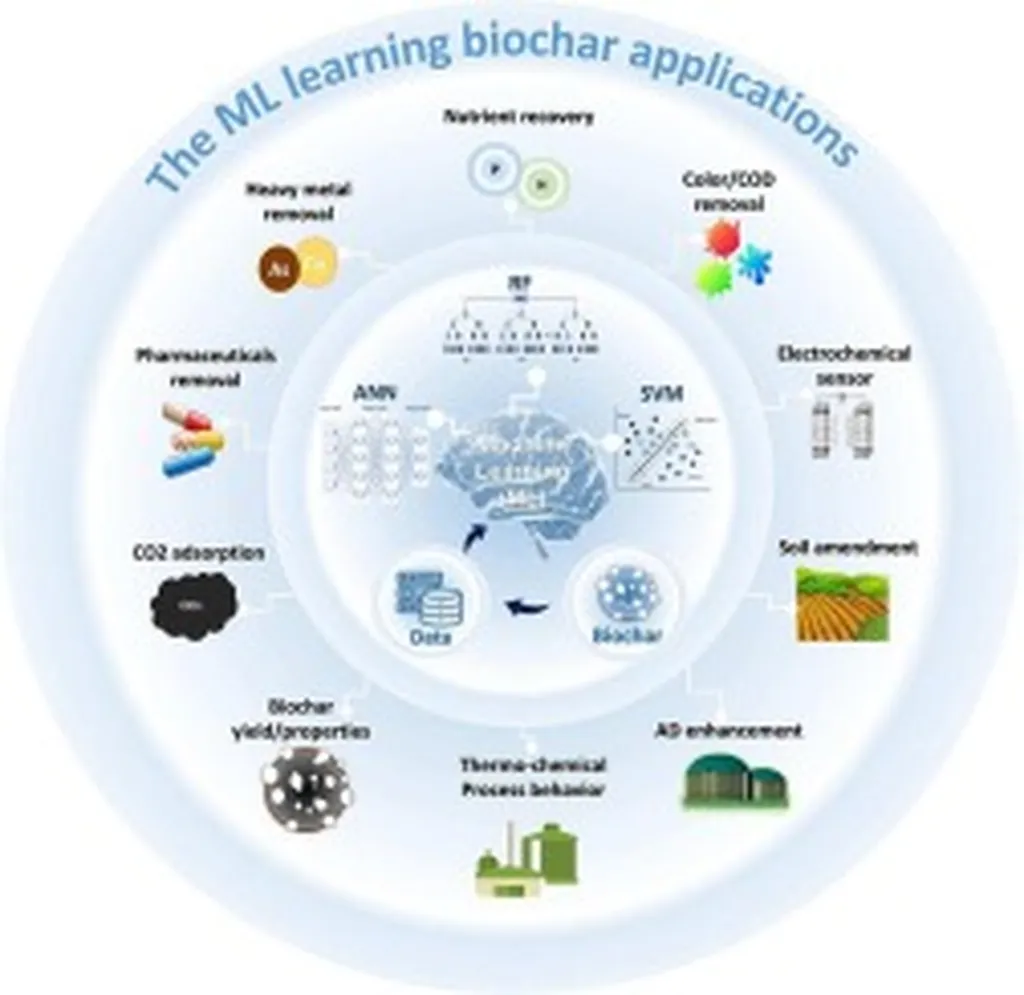In a groundbreaking development poised to revolutionize environmental remediation and sustainable material management, a team of researchers has introduced an innovative artificial intelligence (AI) framework designed to assess biochar quality in real-time. This cutting-edge system, detailed in a recent study published in *Frontiers in Soil Science* (translated as *Frontiers in Soil Science*), integrates classification, regression, and time series models to evaluate biochar safety, optimize pollutant removal, and predict environmental impacts.
Biochar, a high-carbon byproduct of biomass pyrolysis, has emerged as a promising tool in soil conditioning, carbon sequestration, and wastewater treatment. However, its widespread application has been hindered by the need for thorough assessment techniques to identify potential risks such as organic pollutants, metallic toxicants, and volatile organic compounds (VOCs). Enter Shreyashi Deb Roy, the lead author of the study, whose research presents a scalable and smart solution to these challenges.
“The proposed system leverages data from publicly available databases to create biochar safety models for prediction,” Roy explains. The framework comprises three distinct models: a classification model to evaluate biochar safety based on its chemical composition, a regression model to estimate heavy metal levels, and a time series model to predict VOC emissions under varying environmental conditions.
The results are impressive. The Random Forest Regression model achieved a low Mean Squared Error (MSE) of 0.0046 and a robust R2 score of 0.9549, indicating high reliability in predicting heavy metal content. Meanwhile, the Random Forest Classifier demonstrated an external validation accuracy of 96.7%, and the LSTM-based time series model achieved a Mean Absolute Percentage Error (MAPE) accuracy of 87.14% in predicting VOC emissions.
“This multi-model system permits ongoing, precise monitoring while drastically minimizing human interaction and related errors,” Roy notes. The AI models developed show great efficacy in classifying biochar safety, estimating heavy metal content, and predicting VOC emissions at future times. The system improves evaluation accuracy, operational efficiency, and production optimization while reducing disposal expenses and environmental hazards.
The implications for the energy sector are significant. As the world shifts towards sustainable practices, the ability to accurately assess and optimize biochar quality can enhance its use in carbon sequestration and soil conditioning, ultimately contributing to a cleaner environment. The integration of AI technologies into these processes not only streamlines operations but also ensures compliance with environmental safety standards.
“This study provides a new contribution by integrating classification, regression, and time series analysis in one automated quality assessment system for biochar,” Roy concludes. The research offers a scalable and smart solution that can be applied across environmental and industrial applications, paving the way for wider integration of AI technologies into sustainable material management and environmental monitoring.
As the energy sector continues to evolve, the adoption of such innovative frameworks could shape future developments, ensuring that biochar and other sustainable materials are utilized to their fullest potential. The study, published in *Frontiers in Soil Science*, marks a significant step forward in this direction, highlighting the transformative power of AI in environmental remediation and sustainable practices.

